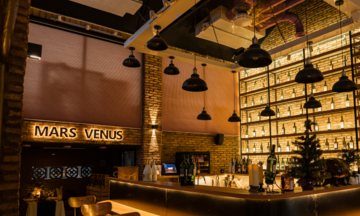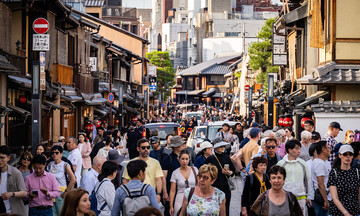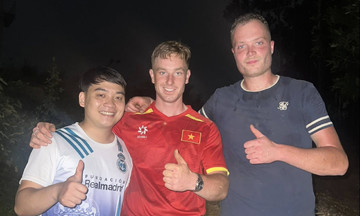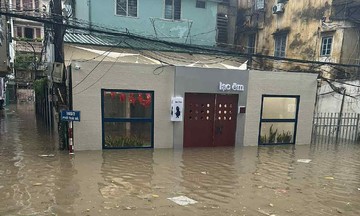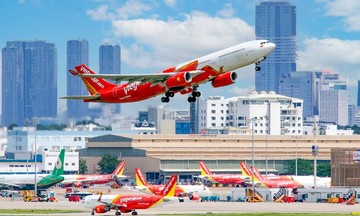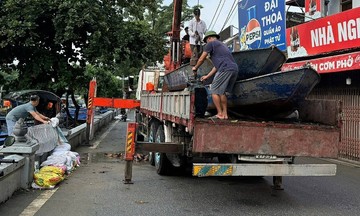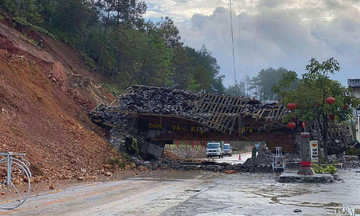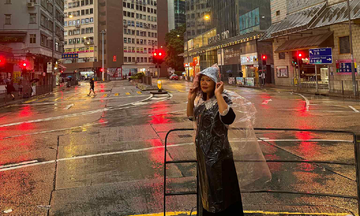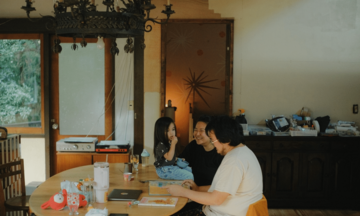With pastel-colored hotels and pristine beaches, the Wonsan-Kalma resort was envisioned as a glamorous international destination. However, accounts from a few Western tourists paint a picture of a modern, business-minded North Korea that still holds many contradictions.
When construction began, leader Kim Jong Un envisioned Wonsan-Kalma as the "Waikiki of North Korea." In June, Russian tourists became the first international visitors to experience its expansive beaches, joining the predominantly domestic clientele. Darya Zubkova, a 34-year-old veterinarian from St. Petersburg, Russia, said her group of about 15 people vacationed there during the summer. Darya was among the first international tourists allowed to vacation in Wonsan since the pandemic.
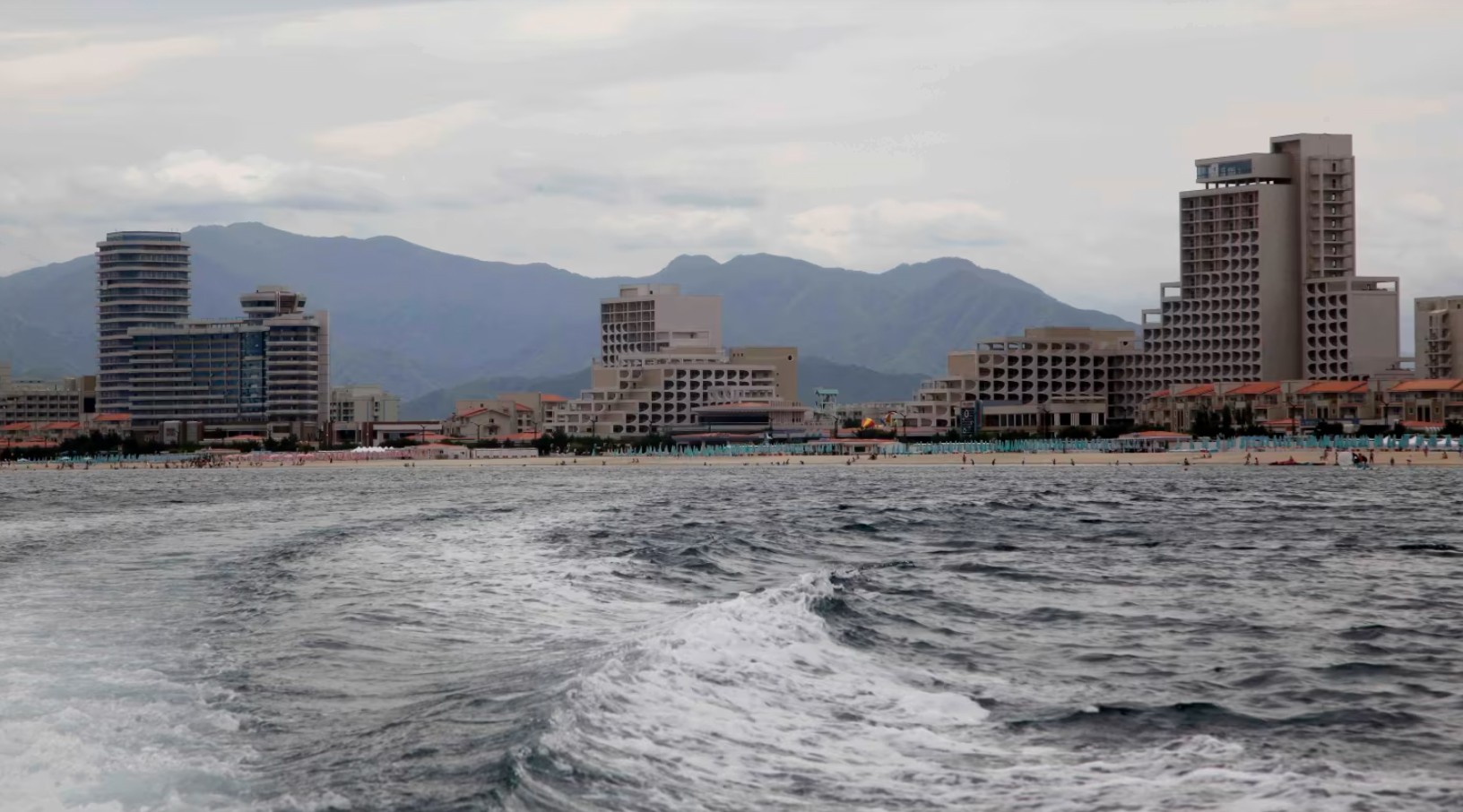 |
The Wonsan-Kalma resort. Photo: CNN |
The Wonsan-Kalma resort. Photo: CNN
The resort is divided into two sections: one for domestic tourists and another for international guests. Darya and her group stayed in the international section, separated from North Korean visitors. International guests were not allowed to move freely between the two areas, while domestic tourists could access all areas except the beach.
From their designated area, the Russian group could see the large water park intended for domestic tourists. "There were a lot of people there, very crowded," she said.
Upon entering the lobby, Darya was greeted with bows from the hotel staff. Medical personnel in white coats then checked temperatures and applied hand sanitizer.
"The service was excellent. We needed a clothes dryer, and they went out and bought one for our room. When we needed chairs to relax on the balcony, they purchased those too, even though our stay was short," Darya commented. She described the dining area for international guests as "expansive," with lavish meals.
The Russian group noted the attentive service they received throughout their stay in North Korea. The hotel staff "went above and beyond," "looked for ways to surprise guests," and "maintained rigorous, high-quality service standards."
On the streets of Pyongyang, the Russian tourists encountered establishments catering to Western tastes, such as cafes resembling Starbucks, large furniture stores, and phone showrooms selling devices for hundreds of USD.
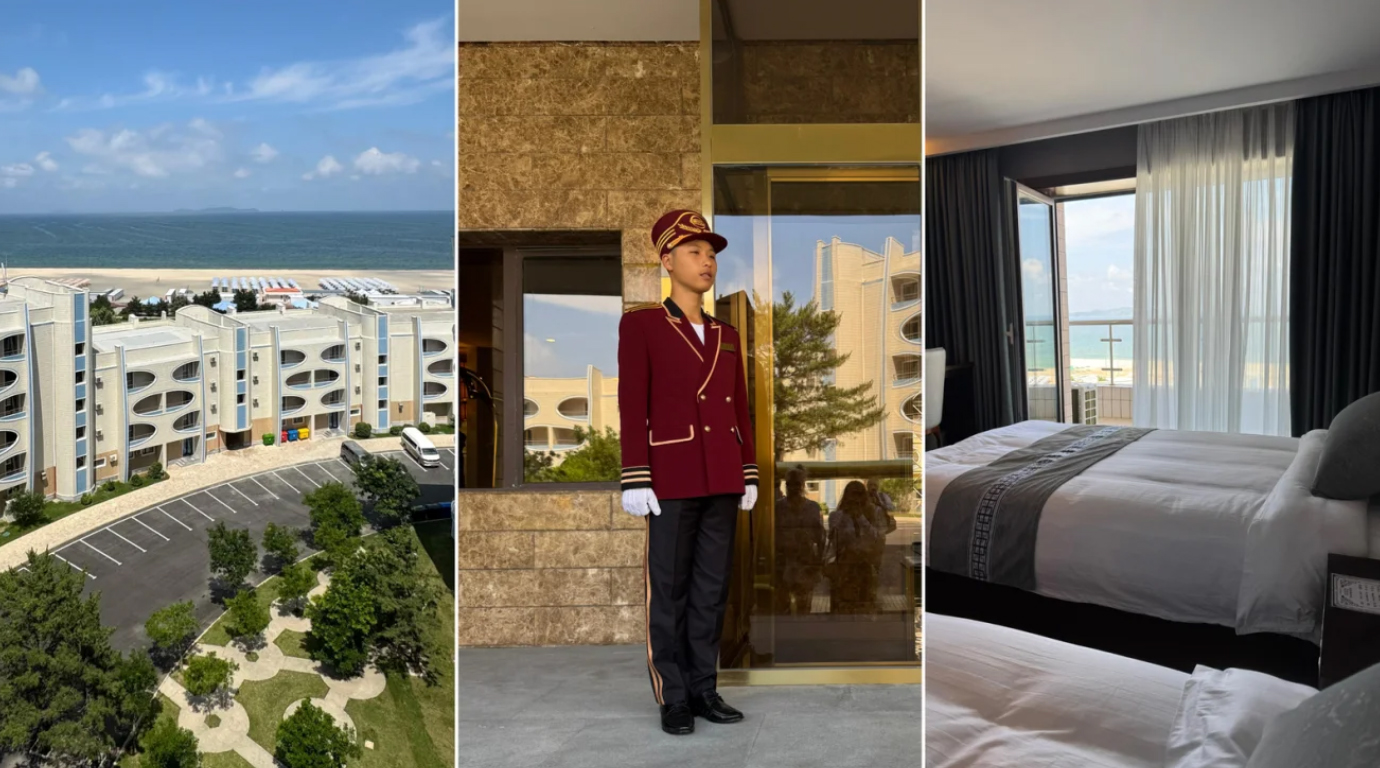 |
Inside the resort, as seen by Russian tourist Darya. Photo: CNN |
Inside the resort, as seen by Russian tourist Darya. Photo: CNN
When Swedish tourist Johan Nylander and his son visited Pyongyang in April this year for the city's international marathon, they were taken aback. "You are surprised by a lot of things when you go to North Korea," Nylander said, noting the unexpected presence of Western brands. Mobile phones were ubiquitous. Even small street vendors accepted payments via QR codes, much like in China.
"You see people texting, watching Premier League football on their phones, playing games. It looks like everyday life anywhere else," he observed.
Analysts suggest Kim Jong Un's strategy to promote consumerism is more than just superficial. By emulating Western brands and conveniences, the government offers the elite the lifestyle they desire while ensuring foreign currency flows into state-controlled businesses.
Nylander and his son had unforgettable experiences during their Pyongyang marathon trip. He felt a sense of freedom running through the city, with locals cheering the runners along the route. He realized that North Koreans are like people anywhere else in the world: they want the best for their children, enjoy karaoke with friends, gather for beers, and engage in conversation and laughter.
Tourism is one of the few sectors not sanctioned by the United Nations against North Korea, and analysts believe Kim Jong Un views it as a lifeline – a way to generate foreign currency.
Before the pandemic, Western tourists could book tours to North Korea through a handful of specialized travel agencies. The trips were tightly controlled but feasible, and hundreds of tourists signed up each year for a glimpse into the country.
The new Wonsan-Kalma project has been particularly touted as a symbol of progress, even mentioned as a potential venue for future diplomatic summits.
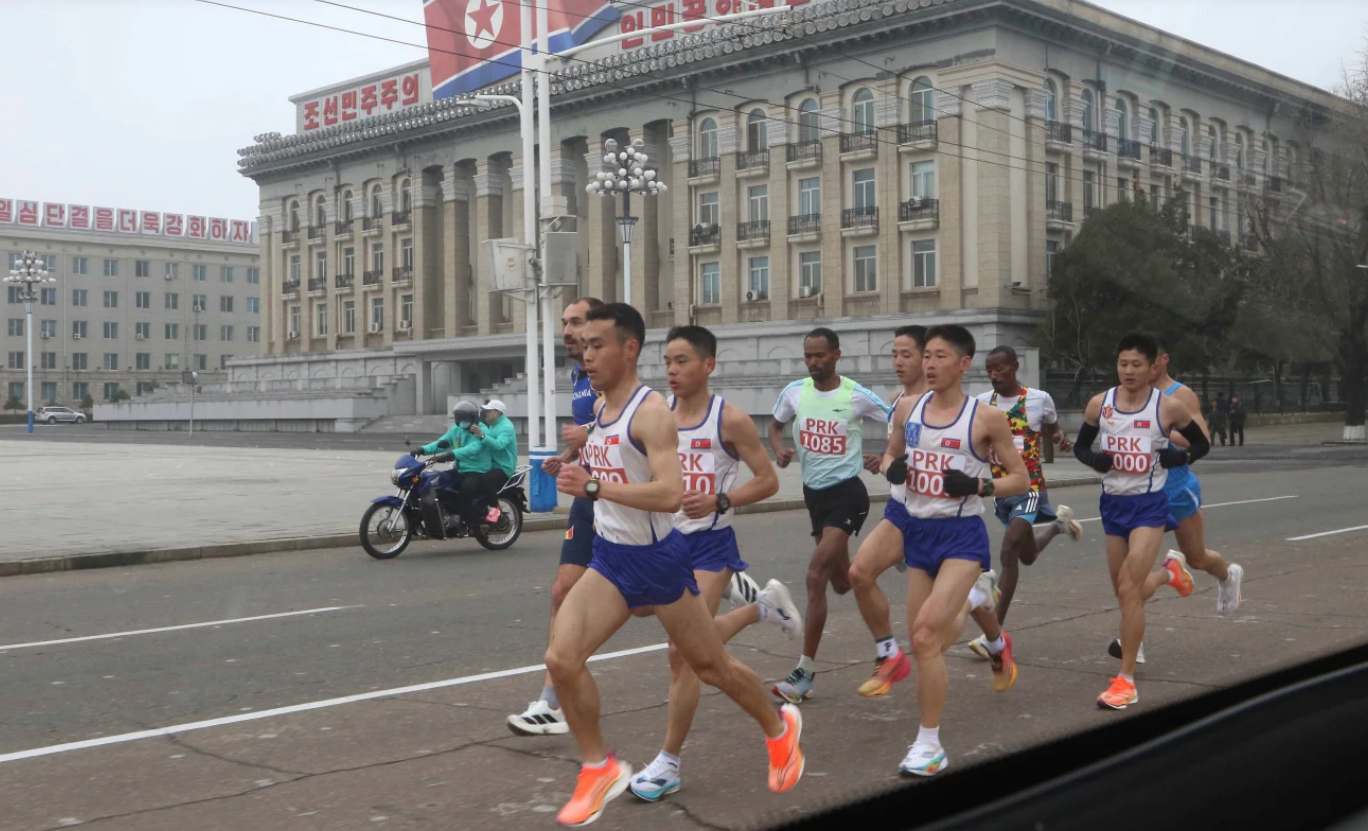 |
A marathon open to international runners in Pyongyang. Photo: CNN |
A marathon open to international runners in Pyongyang. Photo: CNN
Back on Wonsan's beach, the Russian group reported never feeling unsafe or monitored, although Darya noticed staff everywhere – lifeguards, waiters, cleaners, and even doctors.
Currently, North Korea's effort to transform Wonsan into its own Waikiki resembles more of a stage set than a fully operational resort. The beaches are cleaned, the sand raked smooth each morning, but the empty rows of beach chairs reveal a country not yet ready to fully open its doors.
Runner Nylander believes the potential remains. North Korea represents a vast untapped consumer market. If sanctions were lifted, demand for international products would surge. For now, what tourists see in Pyongyang and Wonsan serves as a message to the world that they can be modern, even with their doors largely closed.
Anh Minh (CNN)



